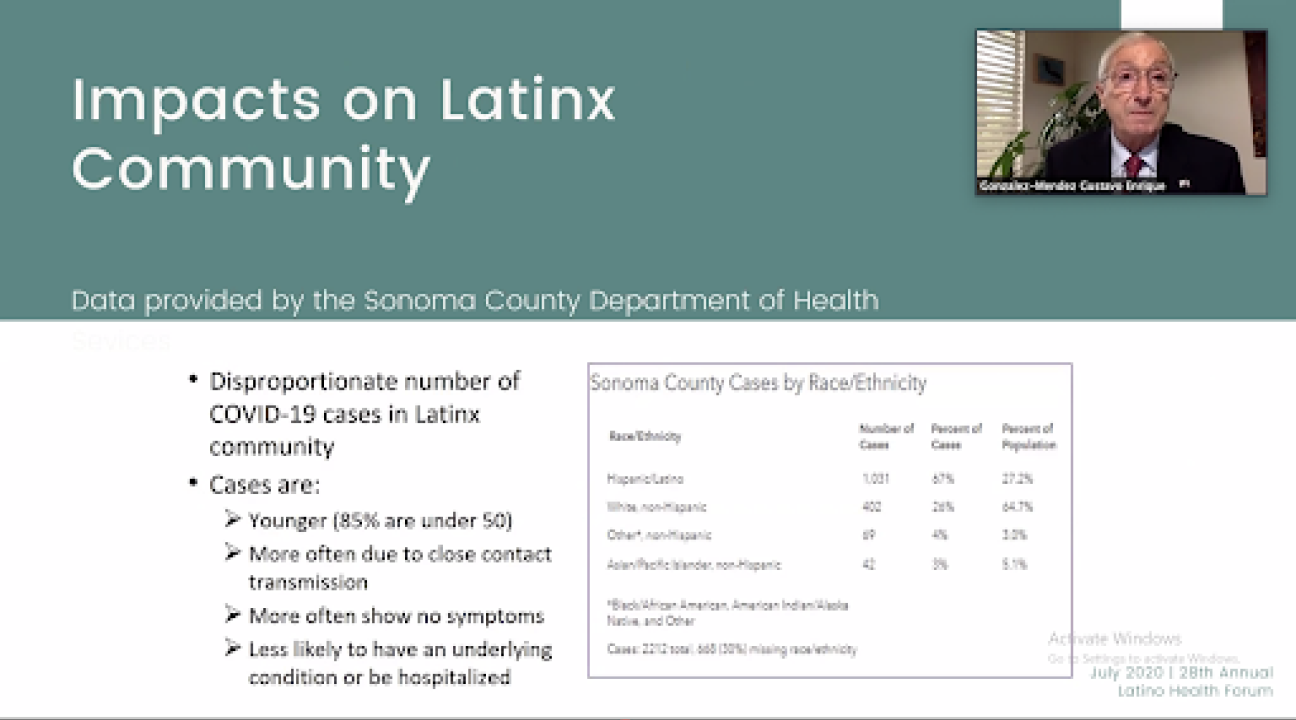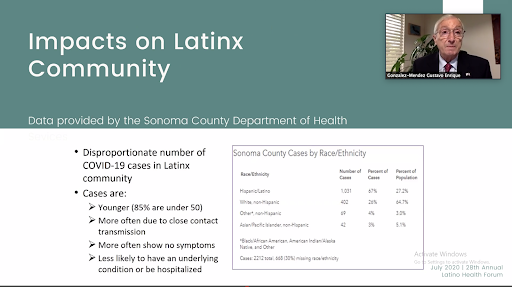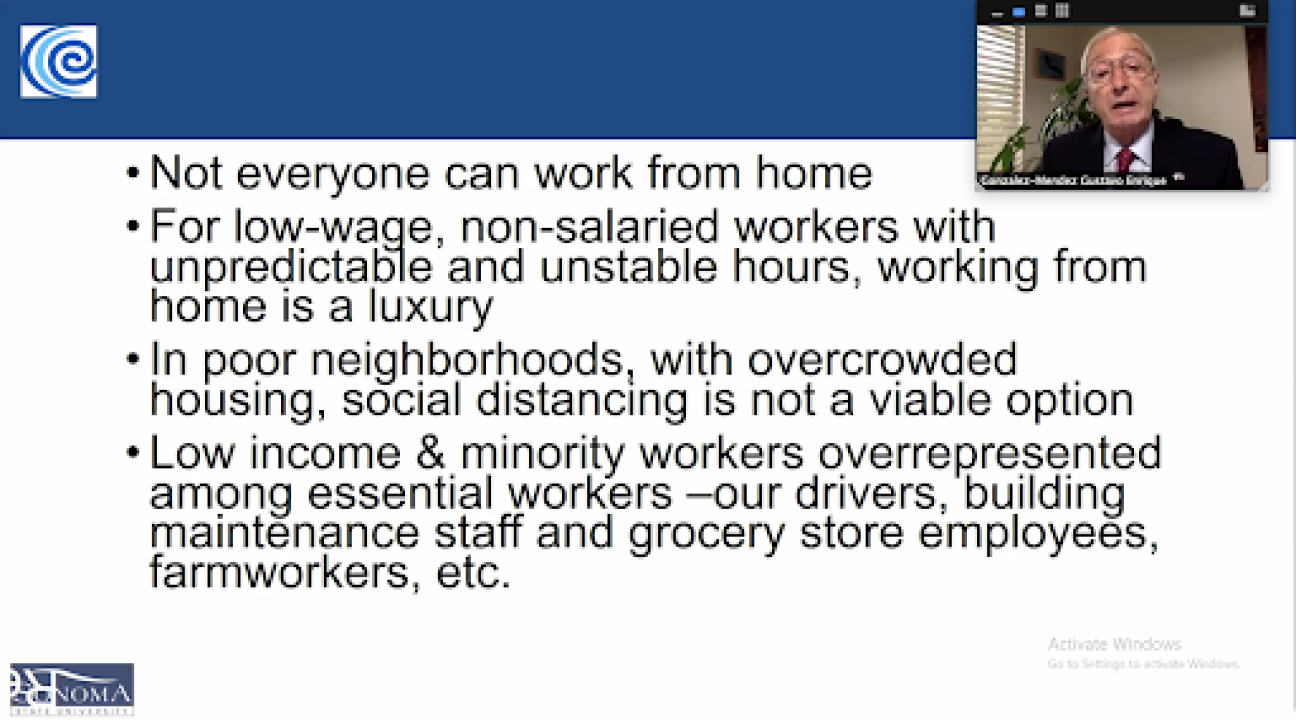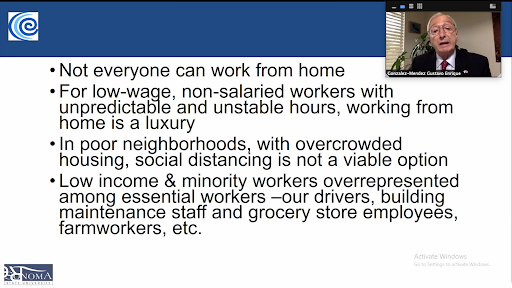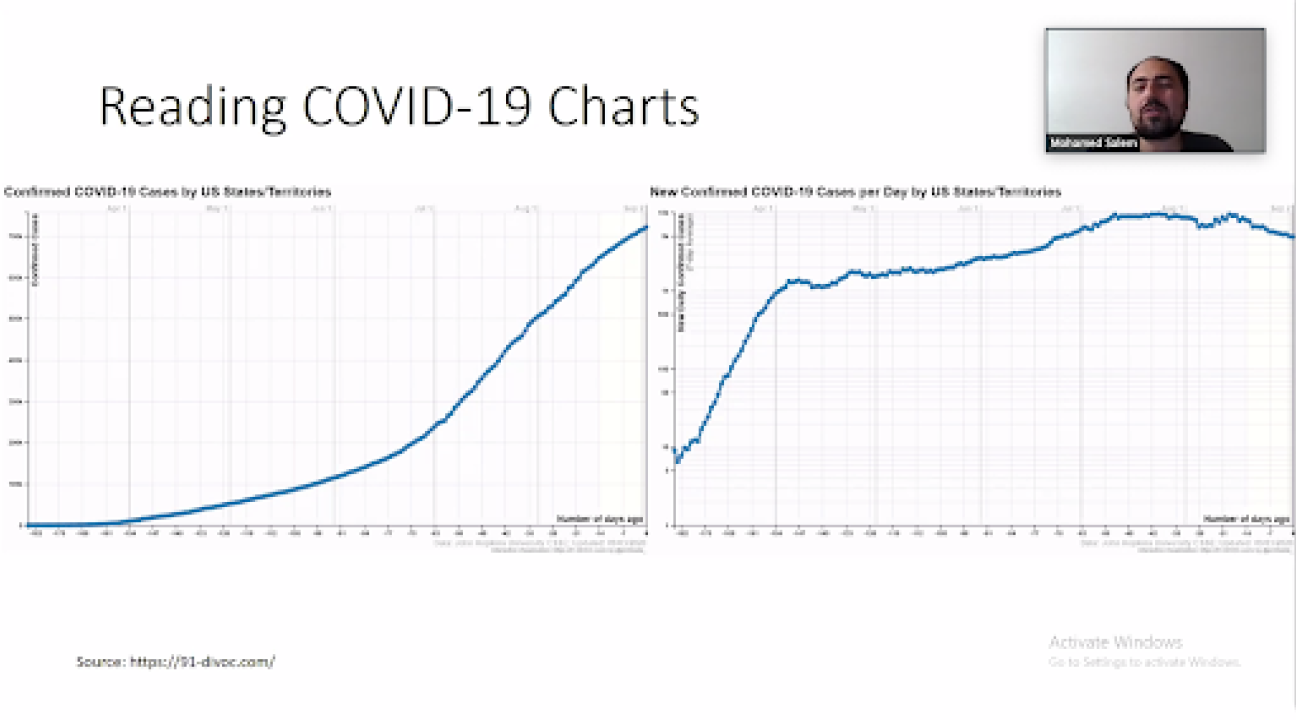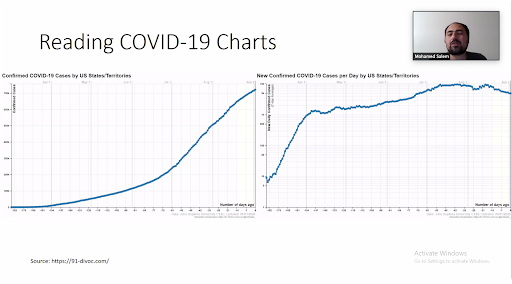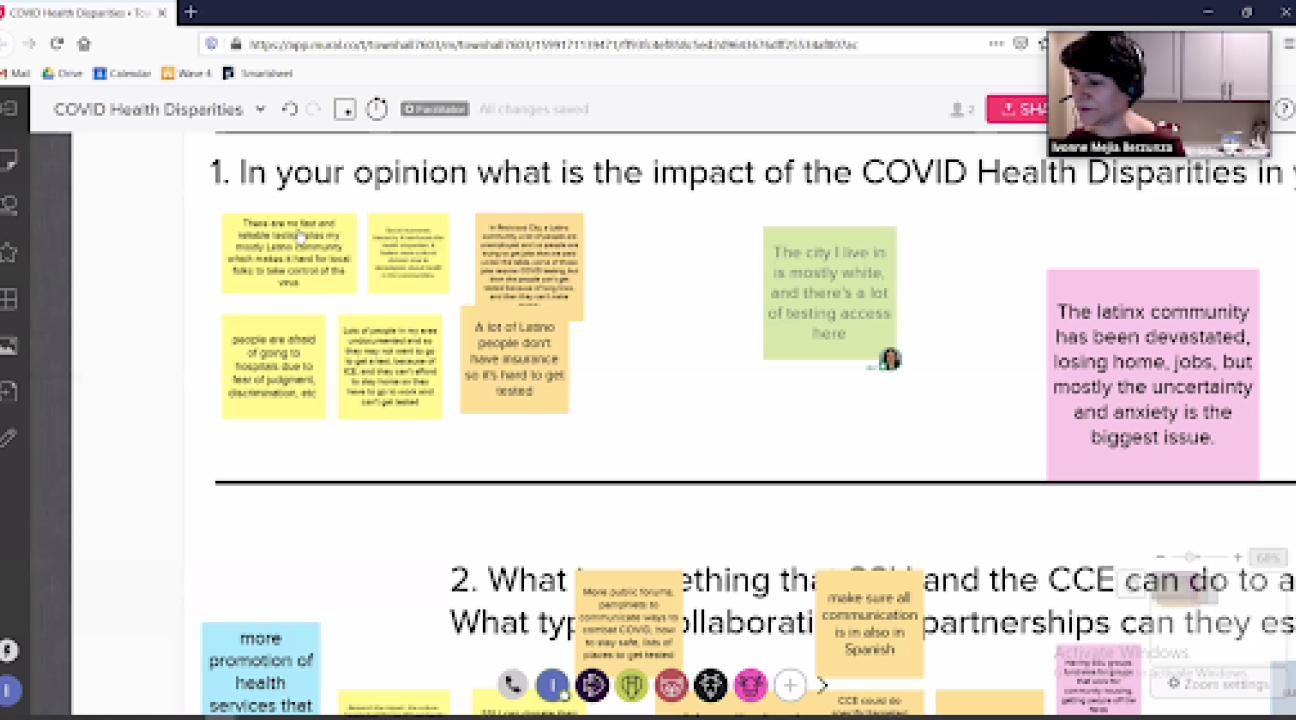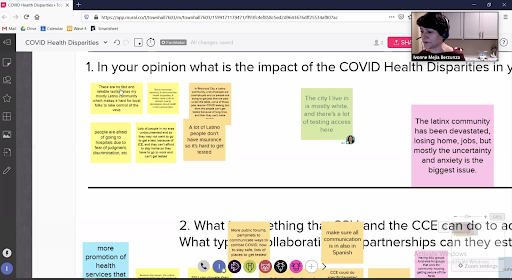What We Should Know About COVID-19 & The Latinx Community
“Your zip code affects your health as much as your genetic code,” said Dr.Enrique Gonzales-Mendez during the COVID Town Hall.
The Latinx community has 75% of all confirmed COVID-19 cases in Sonoma County while only representing 26.5% of the population. Given this information, the purpose of this Town Hall, hosted by the Center of Community Engagement, was to discuss the health disparities among the Latinx community as well as information literacy, specifically in regards to the COVID-19 pandemic. There was a great turn out with over 75 participants who attended and interacted with the presentations and small group discussions.
Dr. Gonzales-Mendez, from the Latino Health Forum, gave a presentation on why the Latinx community experiences a disproportionately higher rate of COVID-19 cases compared to other communities. What I took away from this presentation was that limited accessibility to information, fair working conditions, tight living conditions, and healthcare access are some of the key factors that create this disparity. The presentation addressed how the Latinx community make up nearly all of the field workers in California and this job does not allow the ability for employees to work from home or social distance. On top of these working conditions, benefits such as health care are also often not accessible and undocumented Latinx members may fear going to the doctor.
The second presenter was Dr. Mohamed Salem, from the Engineering Science department at SSU. Dr. Salem discussed the importance of information literacy when it comes to understanding graphs and statistics about COVID-19. I learned that it is crucial that we accurately understand the correct information and don’t believe damaging false information such as the idea that 5G causes COVID-19. These false beliefs distract us from taking the virus seriously and have negative consequences in society.
As a result of listening to this presentation, I did a major privilege check on myself. My privilege as a white person from a middle class family has given me easy access to COVID-19 testing, the ability to work from home, trust in health care providers, and several other opportunities that members of the Latinx community often do not have.
During the small group breakouts we discussed ideas on ways the CCE can help address these issues. Many people talked about the importance of spreading information. I believe events such as this one are a great way to spread information and going into the future I will do my part in cultivating awareness. I have seen how so many people in the United States and in my personal life do not take the virus seriously. On a large scale there have been anti mask strikes the spread of the term “plandemic”, and much more.
In my personal life I have faced criticism for not wanting to attend parties or group gatherings. I have always felt that we must think beyond our own personal experiences to consider how everyone is impacted differently. Attending this event reaffirmed my belief and I will continue to be vocal about the importance of understanding privilege and that those who have privilege should utilize it for the benefit of everyone. This means taking the virus seriously, following health protocols to the best of our ability and informing others. Many of the issues discussed in the presentation will not be fixed without fundamental changes to equal access and opportunities, so I believe pushing for these changes are essential.
This event was sponsored by the California State University Chancellor's Office Center for Community Engagement.
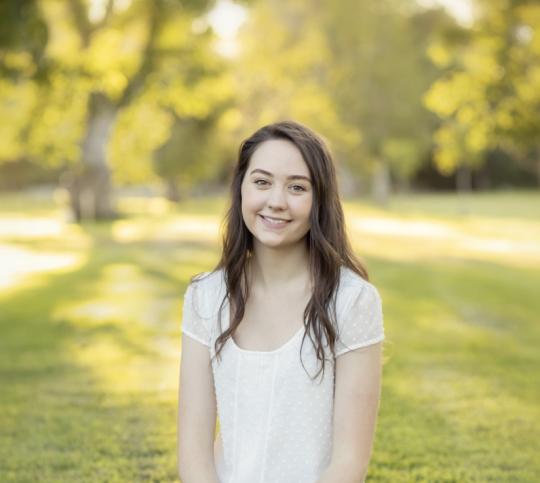
Author: Stephanie Farris


